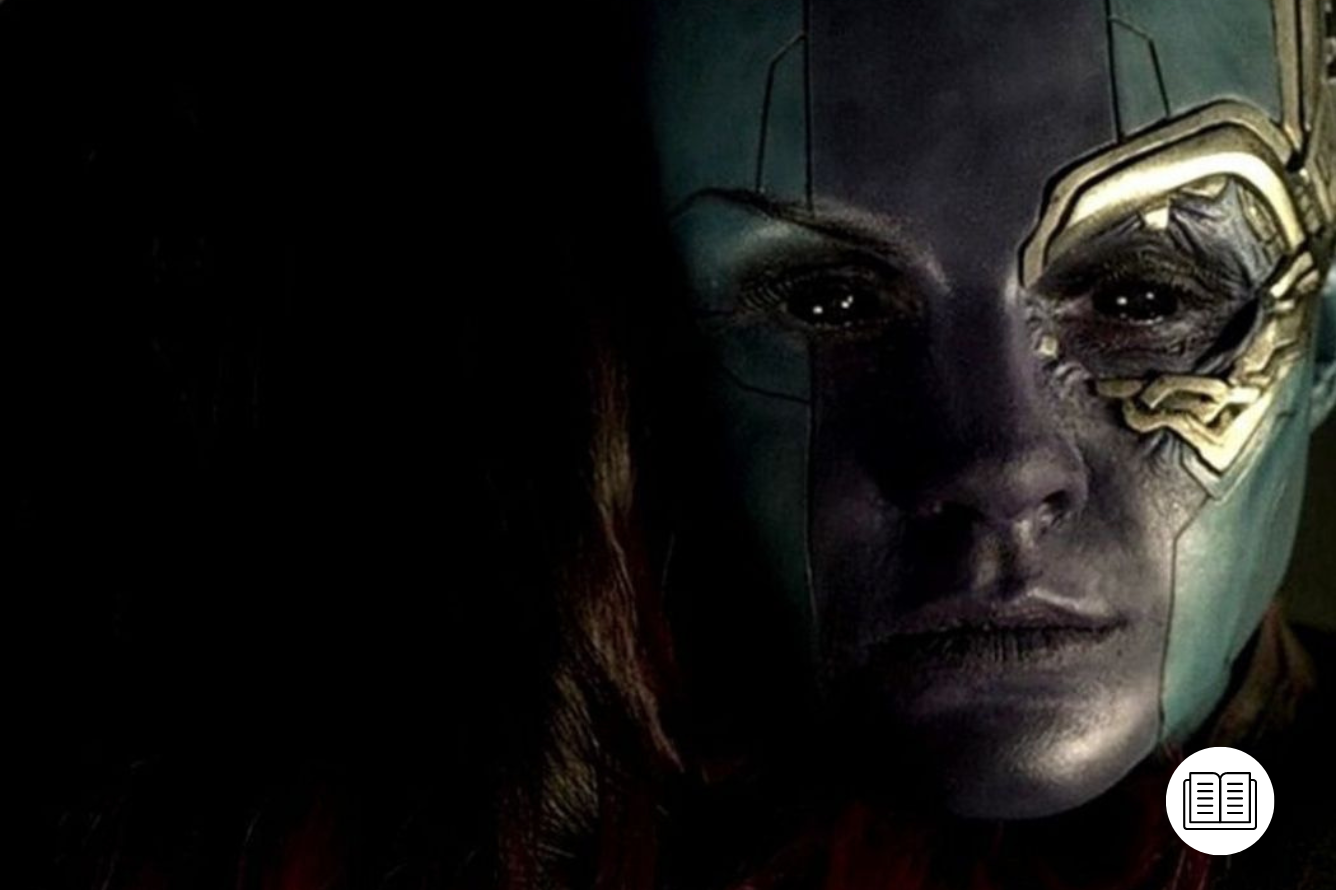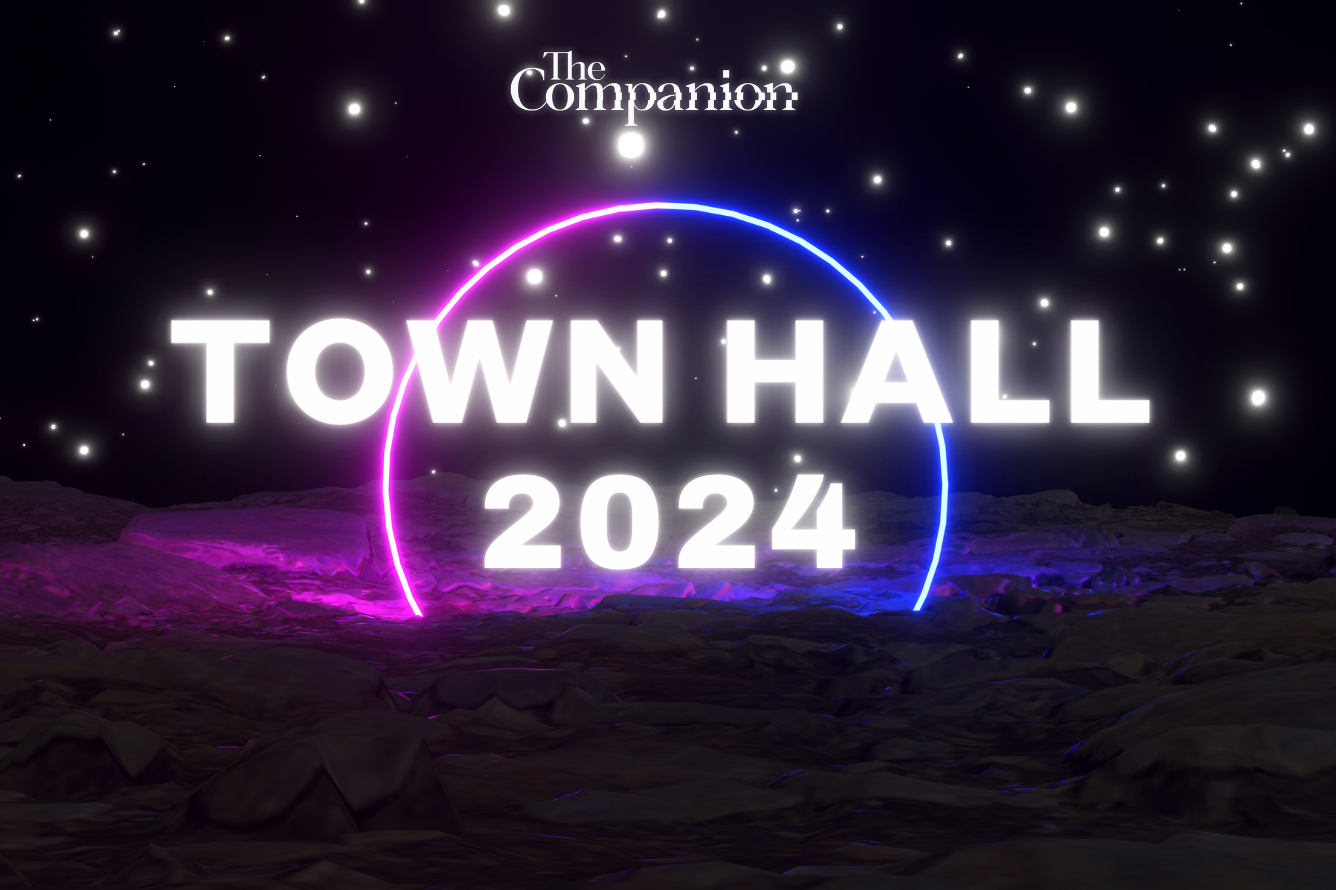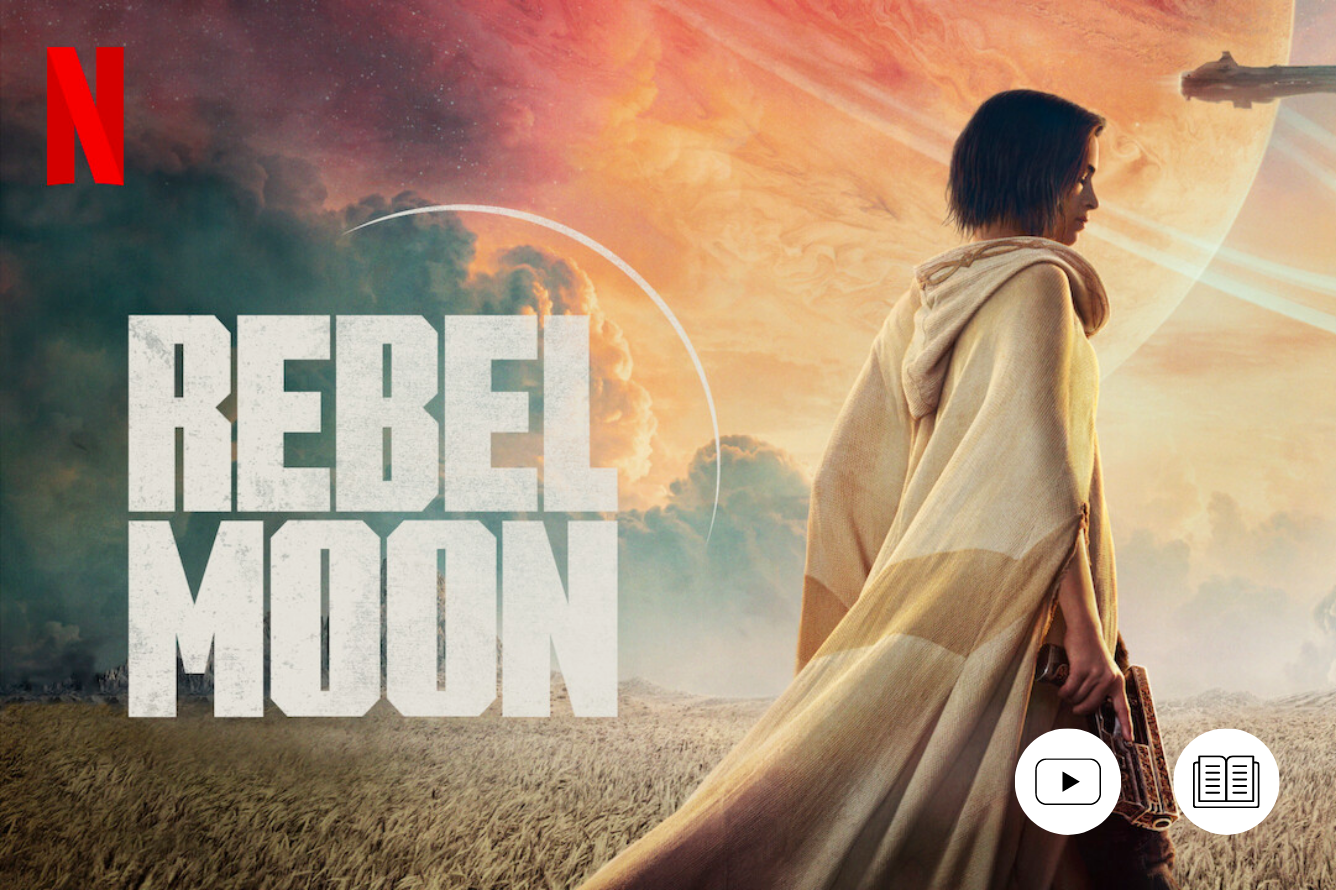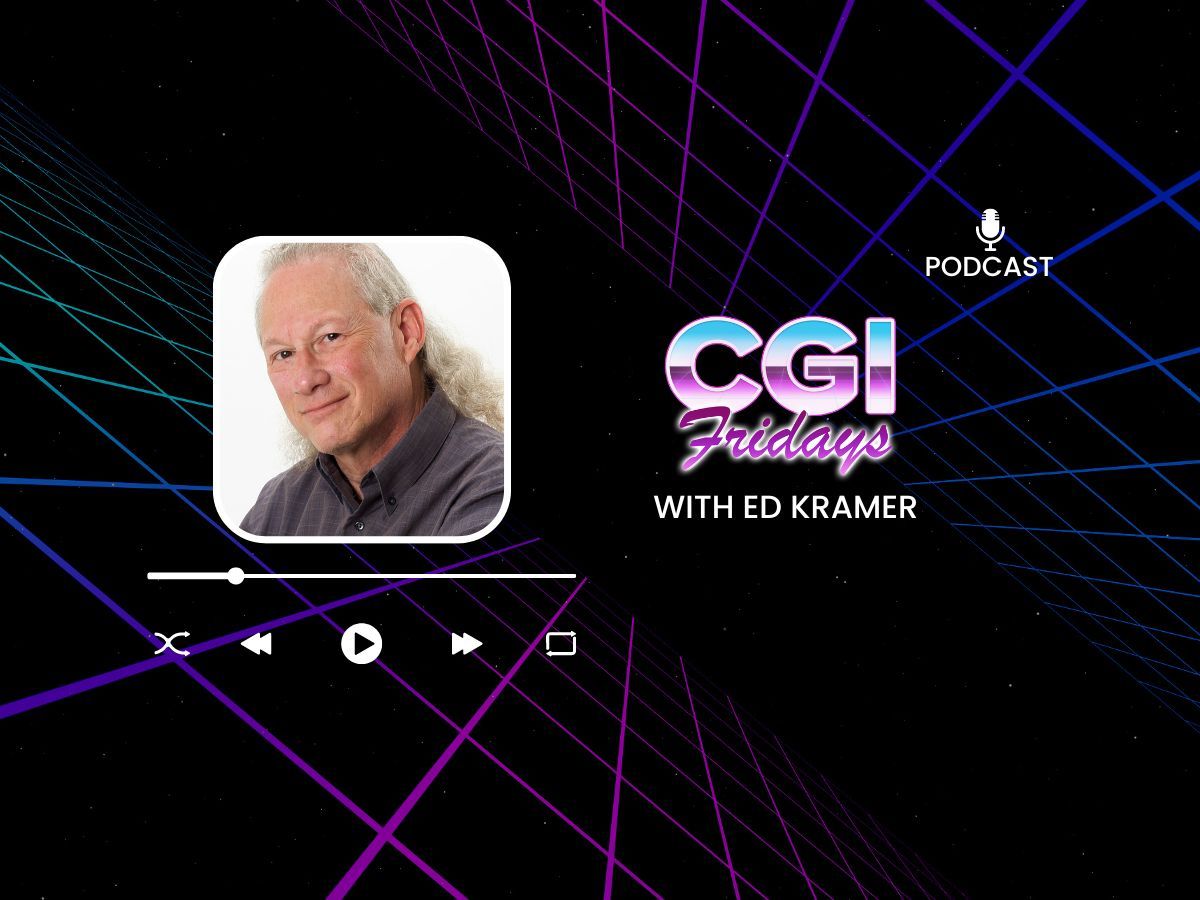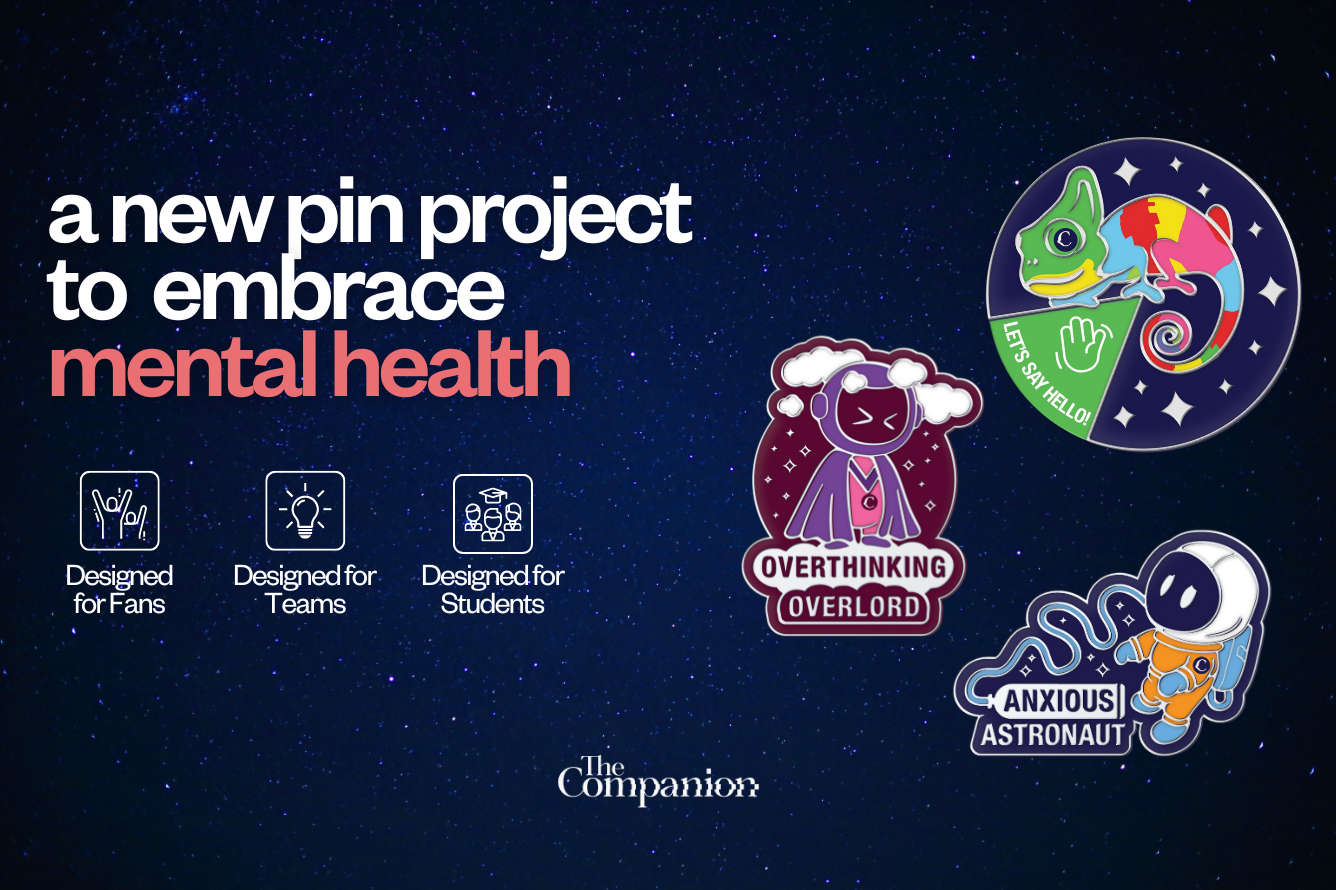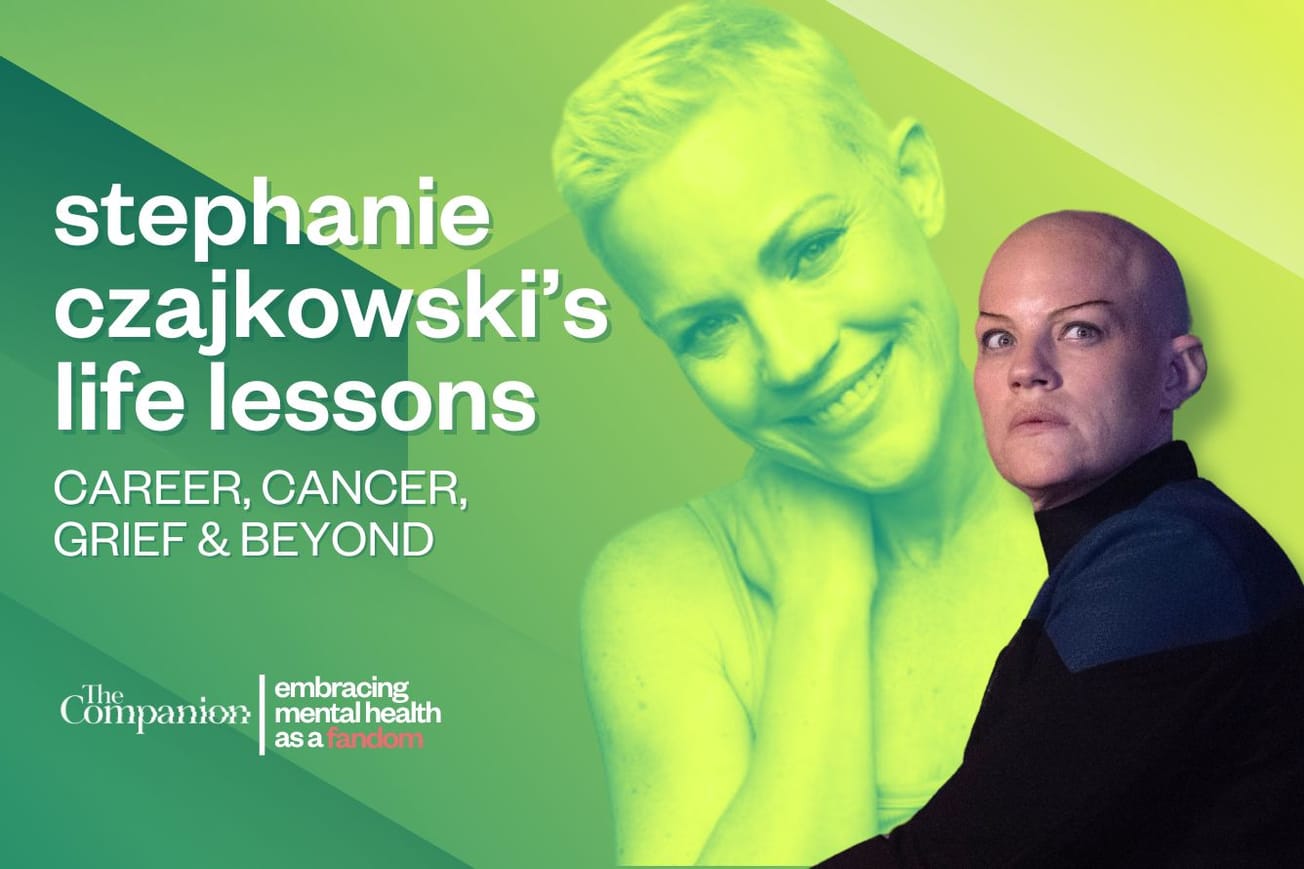The MCU has a complicated history when it comes to representing the dichotomy of love and abuse in its films. They haven’t always treated these issues with their due care; on the one hand showing an applied understanding of trauma in their exploration of abusive relationships, while on the other, failing to grasp the enormity of abuse when dramatizing it, or worse, poking fun at it. Nowhere is this better represented than in the relationship between Gamora and Nebula, and their father Thanos.
When we first meet Gamora (Zoe Saldana) and Nebula (Karen Gillan) in Guardians of the Galaxy (2014), the two are at one another’s throats. In the service of Ronan (Lee Pace), the two fight for the opportunity to retrieve the Power Stone on Xandar, each with their own ulterior motive, both hell-bent on putting an end to Thanos (Josh Brolin).
Ronan appeals to Thanos, who is disappointed in his failure to capture the Stone and in the desertion of Gamora, his “favorite daughter.” To him, Nebula, like everyone around him, is merely a tool in his quest for the Infinity Stones and it’s clear which daughter he loves more. Why does it feel so wrong, then, when the universe proves this love by rewarding him with the Soul Stone in Avengers: Infinity War (2018)?

Abusive Parents: “This Isn’t Love.”
Abuse is a very personal struggle and it’s hard to decipher the lived experiences of these two women from the short glimpses into their lives that we have seen. With their close connection to the primary antagonist, the Infinity Saga presented the perfect opportunity to better explore the characters and their relationship with Thanos. The MCU’s fixation on its male leads, however, draws attention away from their dynamic, thus leaving any meaningful relationship or character nuance by the wayside.
Avengers: Infinity War dramatizes the abuse suffered by Gamora and Nebula, though without much emotional bedrock upon which to build their relationship with Thanos, many of the film’s most dramatic moments feel hollow. When Gamora cries over the (fake) body of her father after she ‘kills’ him on Knowhere, the movie asks us whether, deep down, she really does love him even after all she’s been through. Later, when she realizes Thanos’ intent to sacrifice her on Vormir, her immediate response of, “This isn’t love,” rings true for the audience. Both characters cry over a love we have been repeatedly telling was manipulative and abusive. Therefore, to see Thanos’ treatment of her justified and rewarded by the universe itself reinforces the toxic idea that abusers do what they do out of love for the victim.
What Avengers: Endgame (2019) understands better is the effect of abuse on the victim, as shown by ‘2014 Nebula’. When the Avengers travel back through time to recover the Infinity Stones, we see Nebula as she was in the first Guardians of the Galaxy. Though a little out of character in her eagerness to serve Thanos, 2014 Nebula is clearly in a different place than her main timeline counterpart, still raw from the abuses she is subject to. When cornered by Gamora and Nebula from the future, they ask her to join them in defeating Thanos, proving to her that she can change; it’s here we understand the control the Mad Titan has over his daughter when she replies, “He won’t let me.” Through 2014 Nebula we can see the self-destructive endgame of abuse, as she is shot by herself from the future.

The ‘tortured and complex’ villainy of Thanos, therefore, feels facile when we revisit the Guardians of the Galaxy films and consider just how abusive he was towards his daughters. With her family slaughtered and her planet decimated, Gamora is genetically enhanced and ruthlessly trained to be an unstoppable killer. Like her sister, Gamora is merely a weapon in the Mad Titan’s arsenal. Nebula, on the other hand, is cybernetically enhanced as a punishment for failing to beat her sister in battle. Both hate each other, and themselves, as a result of Thanos’ ‘love’. The narrative decision to justify this love in Avengers: Infinity War is why that scene rubs so many the wrong way. A far more compelling and character-driven story comes in the films leading up to Avengers: Infinity War, as Gamora and Nebula learn to overcome their upbringing and find love in themselves and each other once again.
Sidelining Gamora and Nebula
Guardians of the Galaxy is our first introduction to these characters in the MCU, and we see them regularly objectified and dehumanized as we learn more about their own place in the galaxy. Both have been ‘lent out’ to Ronan (Lee Pace) to aid in finding the Power Stone, and Gamora is called a ‘lackey’, a ‘wench’, a ‘murderess’, and a ‘green whore’, sometimes for laughs. The rest of the galaxy views these women as subhuman, defined by their relationship with Thanos. They are equally blamed for the crimes of their father and are regularly dismissed, both textually and meta-textually, as the film sharpens its focus on Peter Quill (Chris Pratt) and his own familial trauma.
Consequently, the women have little chance to talk before a fight breaks out. While Quill gets a fully fleshed arc about overcoming the loss of his mother, Gamora and Nebula receive frighteningly little attention in this ensemble film, never getting the opportunity to discuss their own lives. Moreover, the regular deployment of catfighting in the film robs them of the emotional bonding other characters get: even Groot has a more proactive role in the first film than Gamora. That is until Guardians of the Galaxy Vol. 2 (2017).
The core theme of the second film is egotism and its relationship to the family. As Peter meets his celestial god of a father, aptly named Ego (Kurt Russell), he must overcome his own arrogant and abusive behavior to save the galaxy from his father’s imperialistic ambitions. Meanwhile, Gamora and Nebula fight to better understand each other and the abuses they suffered at the hands of Thanos.
Following her escape in the first film, Nebula is thrown at Gamora’s feet in chains. At her sister’s mercy, it’s clear that little love has grown between these characters since we last saw them as Gamora states “she’s worth no more to me than the bounty due on her.” As the film progresses, however, we learn more about the connection the sisters share as they interact with each other. It’s James Gunn’s impeccable writing and direction that lends these interactions a sisterly truth, complimented by a comedic flare as the two come into conflict. Far from the pairs’ icy disposition in Guardians of the Galaxy: Vol. 1, their banter feels as sharp and petty as any feuding siblings’ would whilst still carrying that weighty sense of lost love.
This near-perfect balance of humor and drama is epitomized when Nebula attacks Gamora on Ego. In true Gunn fashion, the two end up in a ridiculously over-the-top fight culminating in Gatling guns and exploding spaceships. This nuclear confrontation captures the essence of sibling rivalry and more specifically symbolizes the constant battle of the egos they built to survive Thanos’ abuse.

Sparing each other from certain death, the fight concludes with Nebula opening up about her treatment, detailing the torture she endured whenever her sister bested her in combat. After multiple attempts on her life, she finally admits to herself and Gamora, that she only wanted a sister, not a rival. This scene finally pays tribute to – and helps resolve – a challenging family dynamic that was previously only hinted at and joked about. As they open up, the film fully realizes the source of the sisters’ chaotic and self-destructive hatred. Their constant one-upmanship proves they’re still under the control of Thanos – fighting each other, not for themselves, but to prove themselves to an unloving father. Just as the galaxy blames them, they blame each other for the unforgivable atrocities Thanos inflicted upon them: Nebula is unable to absolve Gamora for the part she played in her abuse.
Gamora and Nebula Break the Chain
Unfortunately, however, this brilliant scene is interrupted when the sisters awkwardly stumble upon the bones of Ego’s failed progeny, clumsily re-engaging the main plot and once again showing how little time these characters get in contrast to their fellow Guardians. Perhaps the biggest issue with these films is their insistence on making Peter the relatable protagonist – listening to ’70s pop, making sly jokes, and being casually misogynist – meanwhile, the women get side-lined.
Seemingly, Gamora’s main priority is always Peter’s safety, often isolating her from the other women in the story. After she and Nebula find the cavern of bones, her first instinct is to grapple Mantis (Pom Klementieff) by the throat and demand answers. When their ship explodes with Peter, Yondu (Michael Rooker), and Nebula aboard, once again Gamora’s first concern is Peter. Sadly, the women in these films don’t treat each other with the kindness and respect they deserve, and while at times this assists the unfolding narrative of dealing with messy family dynamics, much of the abuse they inflict on each other is played for laughs.

At times, the films’ own genre lets it down, as moments of traumatic revelation are undercut by jokey asides. This is particularly egregious in the treatment of Nebula and Mantis in Guardians of the Galaxy Vol. 2; as they open up about their deeply abusive relationships to Kraglin (Sean Gunn) and Drax (Dave Bautista) respectively, their experiences are undermined by jokes. Noticeably, this same treatment is absent when it comes to characters like Drax, Rocket (performed by Sean Gunn and voiced by Bradley Cooper), and Quill who are given uninterrupted dramatic dialogue while the women remain the butt of the joke.
A common criticism levied at Nebula and Gamora is that, like other Marvel women, they are sexless, self-serious, badass bitches and are therefore ripe for making fun of. What many fail to understand is that, not only do the two have their fair share of comedic asides, they both have more reason than any to be detached and humorless. They aren’t the cocksure Avengers, constantly quipping in the midst of danger; they are two women who have been emotionally and physically tormented their whole lives, at times by people they don’t even know, for their relationship with Thanos.
Both have raised defensive walls of ego to shield themselves from further heartbreak and manipulation. For them to start cracking jokes at this point in their character development would be incredibly out of character. These walls of ego have collided with one another at breakneck speed and, as they fight side-by-side to escape Ego, these walls finally begin to break down.
As Peter and the Guardians face down The Living Planet, Fleetwood Mac’s ‘The Chain’ begins playing: a song about being trapped in a toxic love affair. The lyrics “damn your love, damn your lies” connect closely with Quill’s journey, and bind the daughters of Thanos too, and while, for Peter, defeating Ego breaks the chain of abuse, a part of Nebula and Gamora are still trapped by it.
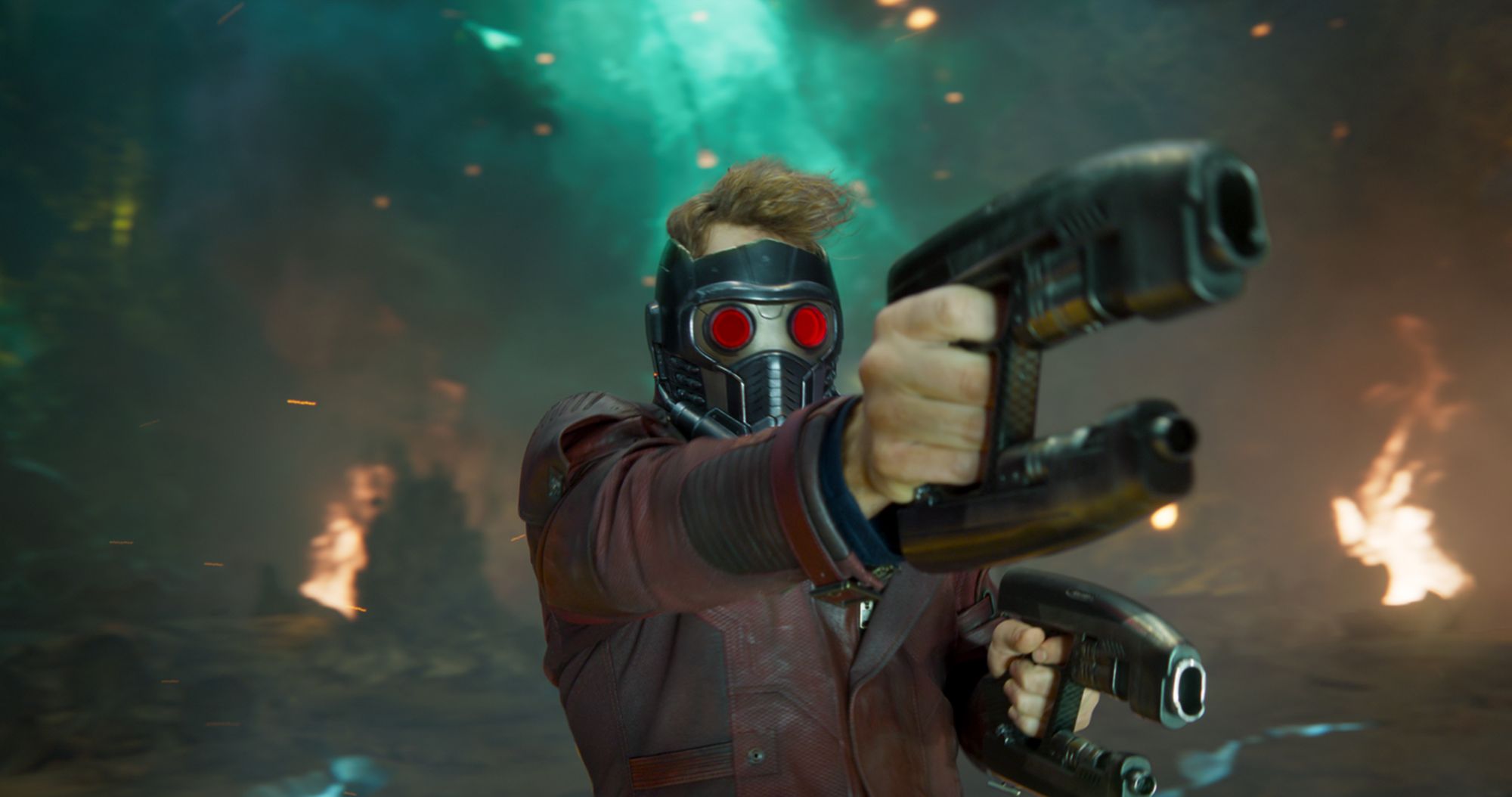
Still driven by vengeance and unable to let go of her father’s cruelty, Nebula makes her way to a shuttle, intent on killing him. Catching up with her, Gamora is finally able to ask for forgiveness; both children struggling to stay alive under Thanos’ thumb, she admits she didn’t fully understand the hardship her sister went through but nonetheless proclaims, “I will always be your sister.” This is the most affirming moment in their relationship and, once Thanos is gone, opens the characters up to new possibilities. Regardless, the events of Avengers: Infinity War and Avengers: Endgame render all of Gamora and Nebula’s shared growth null. With the main timeline Gamora dead, replaced with her past self, she is now, in effect, a different character with none of the experiences of the Gamora we’ve seen in the Guardians films.

While there’s no doubt that James Gunn is an exceptionally talented scriptwriter and director, portraying sisterhood and abuse with wit, maturity, and care, there are times he and his peers falter when bringing trauma to the big screen. Portraying abusive love as love nonetheless, devoting more time and seriousness to male leads, and creating a hostile environment for female characters is antithetical to the main message the film’s relationships show us. If Guardians of the Galaxy teaches us one thing it’s that family can be found even in the most unlikely of places and, once lost, can be found again.
With Gunn scripting Guardians of the Galaxy Vol.3 under a different director entirely, it’s hard to anticipate the direction the series will take. I, for one, hope it’s a happier direction that moves away from the trauma these women have endured and towards a kinder, more equal future.
This article was first published on September 8th, 2022, on the original Companion website.
The cost of your membership has allowed us to mentor new writers and allowed us to reflect the diversity of voices within fandom. None of this is possible without you. Thank you. 🙂


